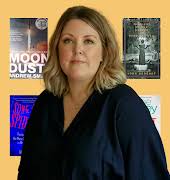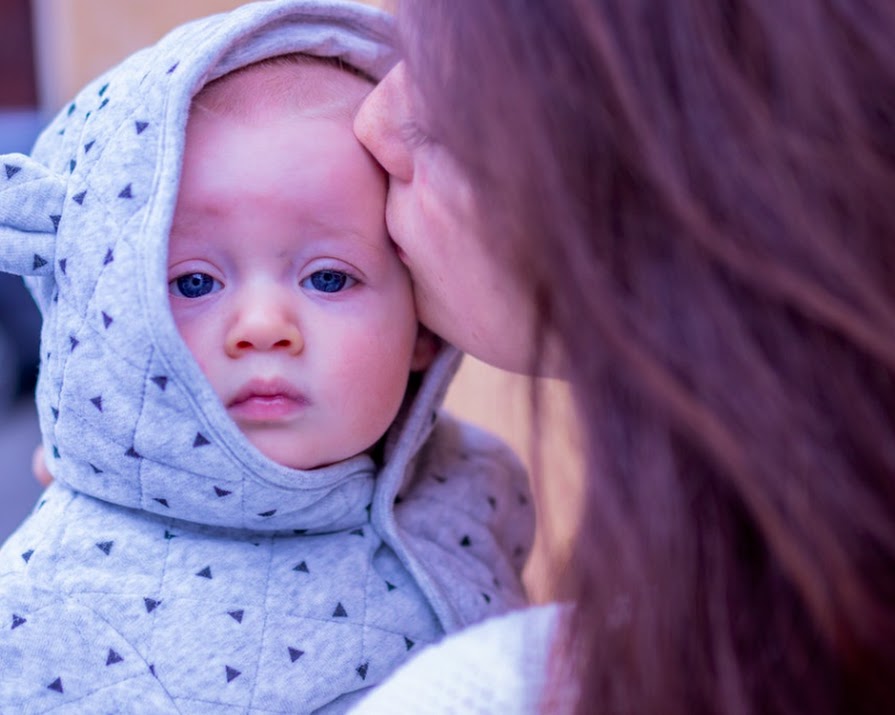
Confessions of a former anti-vaxx parent: ‘I wanted others to take on the risks of vaccinating’
By Amanda Cassidy
03rd May 2019
03rd May 2019
The World Health Organisation listed ‘vaccine hesitancy’ among some of the biggest threats to global health for 2019 alongside air pollution and climate change. The rise in preventable diseases like measles has garnered a lot of attention for the anti-vaccination movement. Amanda Cassidy looks at why some parents still refuse to vaccinate their children.
It is every parent’s prerogative to question all major decisions that involve their child’s health. But many have been vilified for their decision not to get their children inoculated. Herd-immunity is a community-wide barrier to diseases that risk the lives of many. The WHO recognise the dangers of these ‘gaps’ in vaccinations which is why they have placed the anti-vaxx movement firmly on its radar. Vaccine hesitancy, the WHO warned in a press conference this week, “may reverse progress made in tackling vaccine-preventable diseases”, such as measles and diphtheria.
It all started with a study published nearly 20 years ago in The Lancet journal by Dr Andrew Wakefield. He raised the possibility of a link between the measles-mumps-rubella vaccine with bowel disease and autism. This research was later retracted and his work fully discredited. But the misinformation had dangerous consequences for parents who feared that exposure to such vaccinations could be detrimental to their children. There has been backlash too, from parents who fear unvaccinated children could infect their own.
Even though vaccination rates across the country are still high, (according to the CDC) there remains some communities where disinformation campaigns which claim that ‘vaccines are dangerous’ (often called ‘anti-vaxx’ campaigns) have led to parents refusing to vaccinate their children. Last month Facebook said it would be removing anti-vaxx groups from its ads and recommendations, making it harder to spread disinformation.
“I felt superior”
Teacher Kristen O’Meara was staunchly anti-vaccinations until her daughters got seriously ill. “I got absorbed in the anti-vaxx culture and secretly thought of myself as being superior to others. Parents who vaccinated didn’t have my special investigative skills. As far as I was concerned, they didn’t stop to question and were just sheep following the herd. I just thought: “Let someone else take on the risks of vaccinating. It was a very selfish viewpoint because I had the best of both worlds. I knew that my daughters had a low risk of contracting vaccine-preventable diseases — precisely because vaccination is effective. I had faith in herd immunity while questioning its very existence.”

She hopes her experience can encourage other anti-vaxxers to immunise their children.”I’m frustrated with the amount of misinformation I encountered when I set out on this journey. But in the end, I am thankful, for the sake of Natasha, Áine, and Lena, that I was able to reassess my position and accept information that is based on well-established, sound scientific evidence. If I can make even one anti-vaxxer think twice, speaking out will have been worth it.”
“Not good enough”
In Ireland, the ‘six in one’ vaccine is routinely offered free as part of the normal immunisation schedule for children and protects against diphtheria, tetanus, whooping cough, polio, Haemophilus influenza type B (Hib) (prevents meningitis, pneumonia, and other serious infections), and hepatitis B. Since October 2016, babies born will also be offered the Meningitis B vaccine. Children born before October 2016 did not get the vaccine to protect against the B strain, one of the main forms of meningitis. Parents need to pay their GP to get it privately and it costs about 280 euro.

In recent years, the uptake rate for the MMR vaccine has remained quite stable – the uptake rate among children aged 24 months was 92% in the second quarter of 2018, unchanged from the same period last year. Dr Suzanne Cotter, Specialist in Public Health Medicine at the Health Protection Surveillance Centre (HPSC) said this is good but not enough. She says said the goal is to reach at least 95%. “ The number of reported measles cases in Ireland more than trebled last year. There were 85 reported cases as of December, up from just 25 for the whole of 2017. Seven in 10 of the confirmed cases (51; 69%) involved people who were not vaccinated.” Cotter says there is “a certain amount of vaccine-hesitancy” among some groups, due in part to misinformation being spread about vaccines.
“The MMR vaccine is a safe, effective vaccine. It definitely provides protection against measles, which can be a serious disease.”
Meanwhile, 12 people have been diagnosed with meningitis during a spike in cases since December.
Jennifer Cormitt had a healthy pregnancy, with no problems or complications, and went on to have a healthy birth. She exercised regularly and ate a balanced diet, which is why she refused the whooping cough vaccination when it was offered to her at 28 weeks. She says it was something she regrets. During the last two weeks of her pregnancy, she contracted whooping cough. Her newborn daughter, Eva, also contracted the disease.“Within 2 weeks, the cough became pretty scary, horror movie stuff, coughing to the point of becoming blue, flopping in my hands, can’t breathe, running into hospital. It’s so hard to watch your tiny little thing….They go red, they go blue, sometimes they go a bit black.
“For a moment, you think they’re dead in your hands. They flop. It’s a lot of suffering for a little thing you love so much. I wish I could have turned back the clock.”

Naturally, It’s an issue that’s fraught with myths, fears, and confusion. So can you blame some parents for their hesitation? Fear and superstition are powerful motivators, the anti-vaxx stories are compelling, and it is hard to call into question the logic of a terrified parent. The most significant concern among parents is, of course, safety. We saw this during the HPV debate recently when it was hard to ignore some of the terrible stories about teenage girls apparently unable to function after getting the cervical cancer vaccine. But we all know that vaccines, like all medicines, can have side effects. In vanishingly rare cases side effects can be serious. And there is no doubt that health authorities need to communicate a lot better.
The problem is that on social media, a single emotional story trumps years of empirical data, or eye-popping numbers like the estimated 5 million lives vaccines save each year.
Guggie Daly is a prominent Anti-vaxxer. She says vaccinating children is compromising their basic human rights. “Forced vaccinations inherently are a human rights violation. They do not immediately save a life or treat an existing illness. They are an optional, experimental product based on an unproven theory. Informed, consenting adults can choose to take them if they want. But it’s medical malpractice to force them onto non-consenting children. Instead of people demanding that vaccine companies, doctors and the government prove that this medication is safe, effective, necessary treatment in our children, we take on undue responsibility to prove that vaccines are ineffective, unsafe and unnecessary. Completely backwards.”
Life-changing consequences
What is overlooked by many anti-vaxx parents is the fact that just because an adverse health outcome occurs in the time after a vaccine, it doesn’t mean that the vaccine caused the problem.
Life is not risk-free and it is our job as parents to weight up the question of what will help our child versus what would hinder them more?
This goes, not only for vaccinations but for all aspects of life. Sure, those stories send shivers down our spines but we can’t let fear rule over logic, scientific data and advances in medicine. When it comes to making medical decisions that could have life-changing consequences for our children, we can’t rely on Facebook comments or Twitter rants. If we wanted to only focus on the ‘what-ifs’, we would never let our children get a general anaesthetic for an operation – but we do because we understand that the majority of times, the benefits outweigh the risks.
As for the ‘harmful contents of all vaccines’ that worries so many anti-vaxxers, we’ll rely on the experts at Oxford University rather than conspiracist theorists. “The key ingredient in all vaccines is the active ingredient. This is the part that challenges the immune system so that it makes antibodies that can fight the disease. Apart from this, the main ingredient in vaccines is water. Most injected vaccines contain 0.5 millilitres of liquid, in other words, a few drops. All other ingredients weigh a few milligrams (thousandths of a gram) or even less.”
An ethical responsibility?
Vaccine ingredients can look unfamiliar and scary. However, it is important to remember that many of the substances used in vaccines are found naturally in the body. For example, many vaccines contain salts based on sodium and potassium, which are essential for life. People may think of formaldehyde as a man-made chemical, but in small quantities, it is also found naturally in the bloodstream. All vaccine ingredients are present in very small quantities, and there is no evidence that any of them cause any harm in these amounts. If you look up some vaccine ingredients on the Internet you may read that they could be harmful, but most of them are present in vaccines in amounts that are completely normal for our bodies. Even common salt (sodium chloride), which is essential for normal functioning of the body, is harmful in large quantities.”
Of course, vaccinating our own children can go a long way to protecting them, but what about the importance of protecting others – the younger and more vulnerable children in our community? Premature babies, immune-compromised teens? Many view this as an ethical responsibility and something that should be taken on board when we risk putting herd-immunity in jeopardy.
As parents, we have a responsibility to seek valid and correct information on behalf of our children, rather than relying on the opinions of lay people on the Internet. When I was faced with giving my newborn BCG injection, I spent a lot of time researching and questioning beforehand as is my parental right and responsibility. It is good to question what we are putting into our children but make sure the information you come across is sound.
Seek real advice from experts, doctors, professors and health agencies. Then make a decision that you are happy to stand by. This is too important an issue to be careless with what we choose to hear.
Everything carries risk – but I’m not prepared to risk my children’s lives on someone else’s ‘what-if’. This is the time to separate emotions from scientific research. My choice is to put my faith in the experts.























